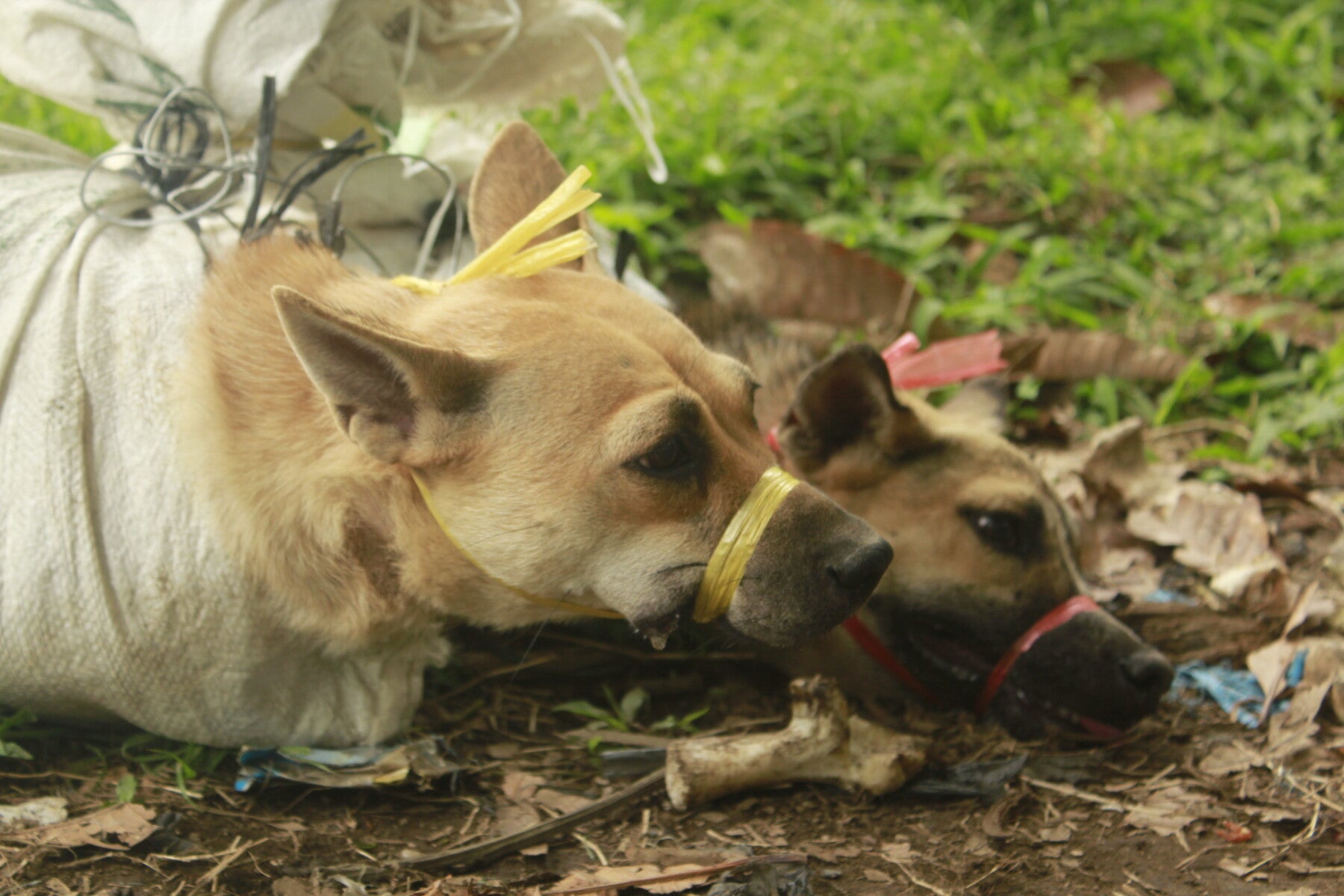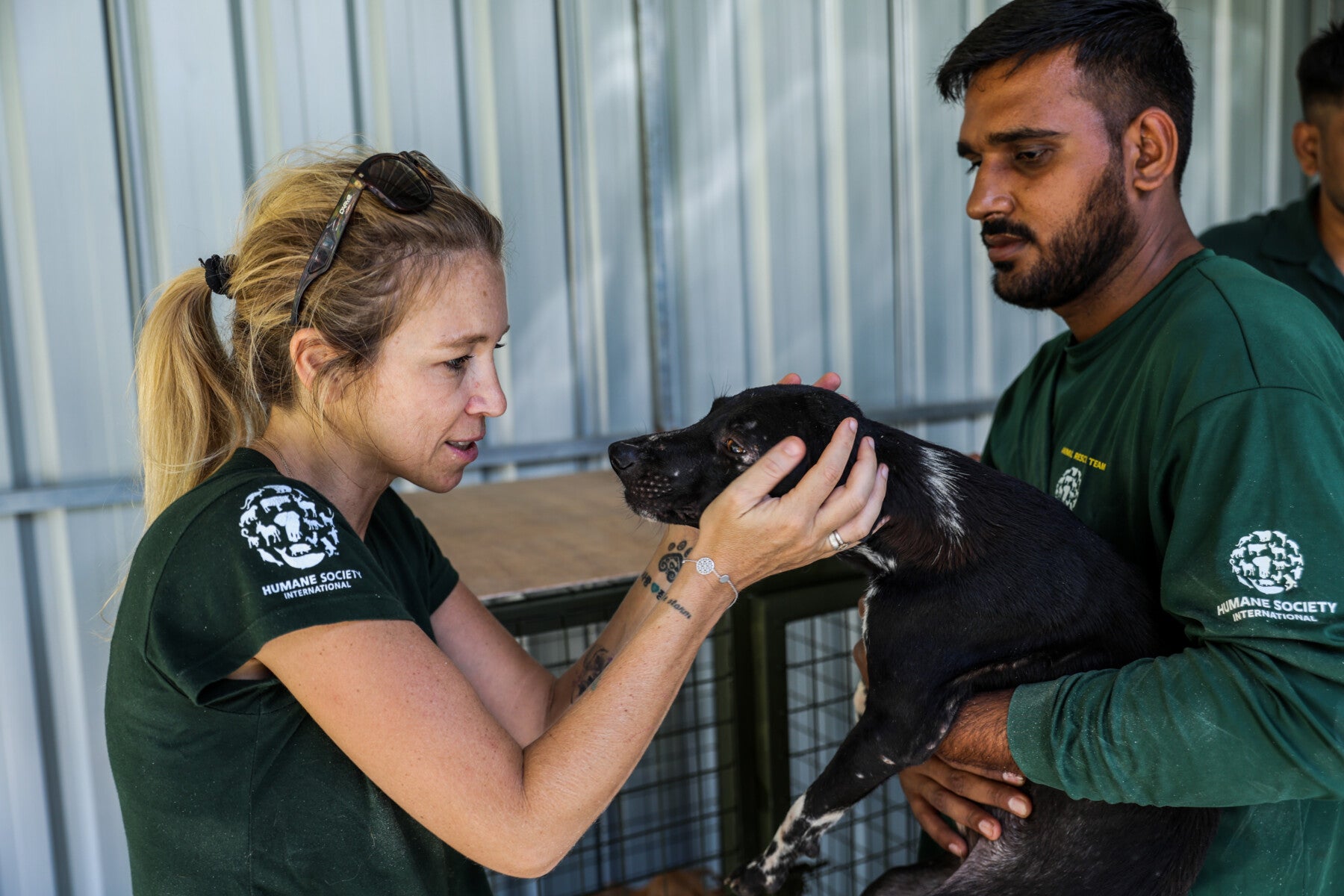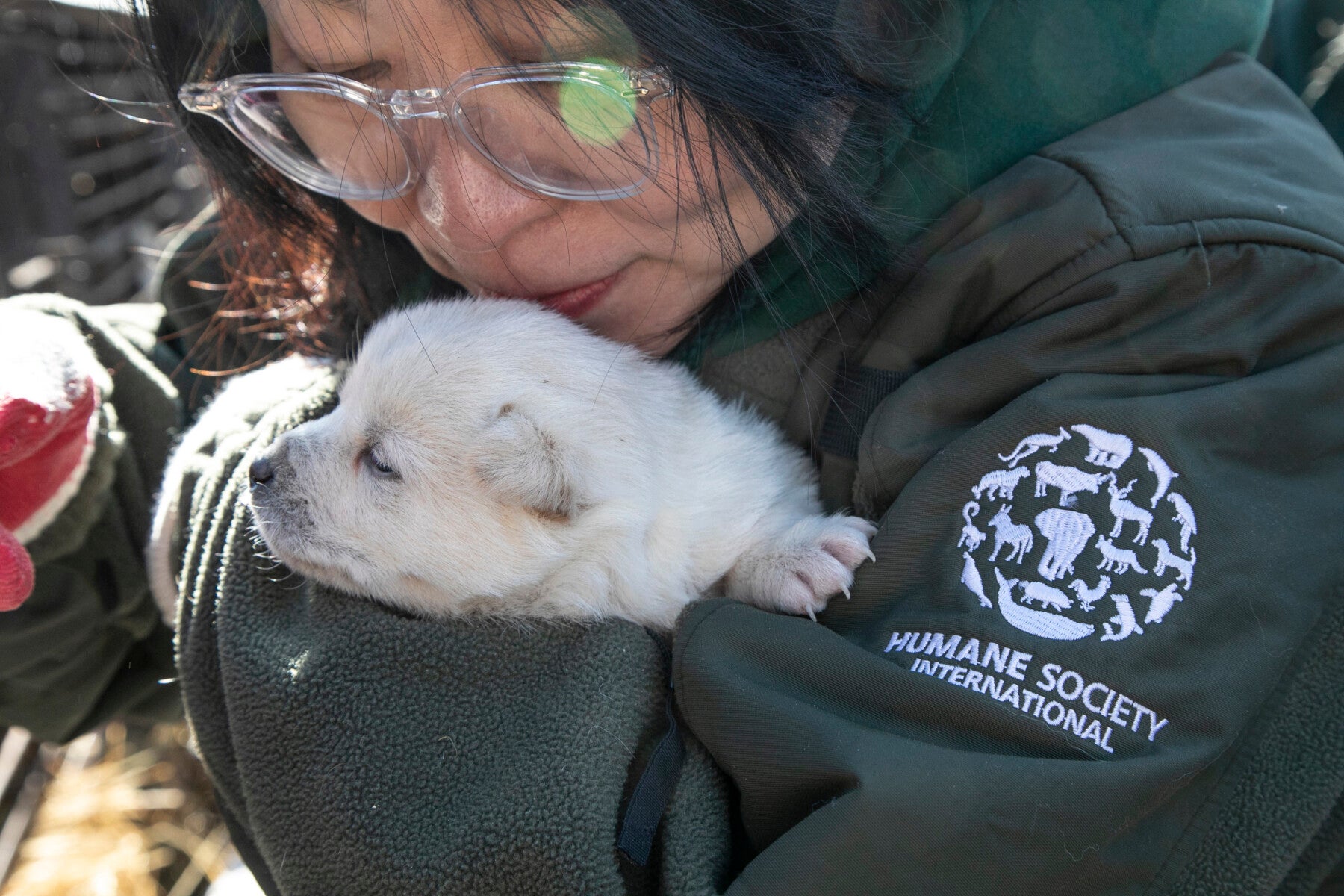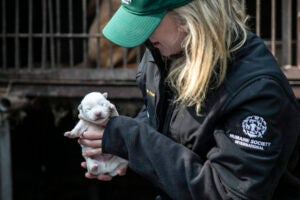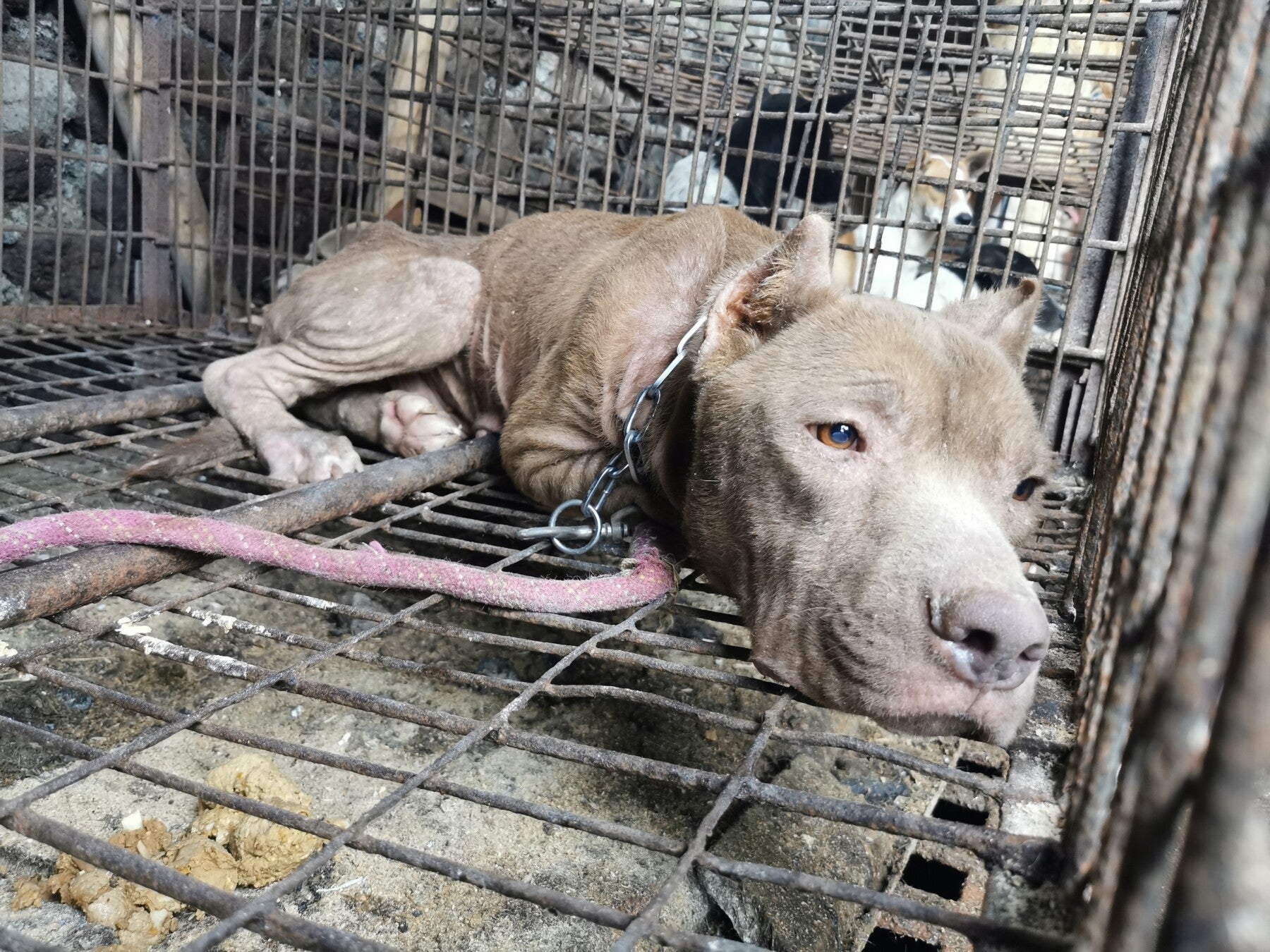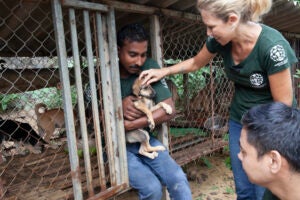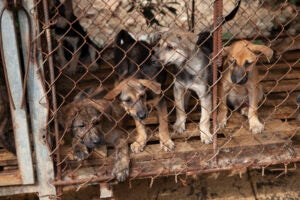
HANOI—Viet Nam’s Prime Minister Phạm Minh Chính has been urged to take decisive action to end the country’s trafficking and slaughter of 6 million dogs and cats for meat every year, if his recent Directive to tackle deadly rabies is to be successful.
Rabies is endemic in Viet Nam with government statistics reporting an increase in human deaths, including 82 human rabies-related deaths last year across 30 provinces and cities and 27 deaths in the first three months of 2024. Nearly 70,000 people required rabies prophylaxis treatment. Interaction with dogs through bites as well as dog meat butchery and consumption—are responsible for 99% of rabies transmissions to humans. While the Prime Minister’s Directive rightly calls on provincial authorities to increase dog vaccination rates, global animal welfare experts Humane Society International warn that such efforts will forever be undermined as long as the country’s dog and cat meat trades continue unabated.
Phuong Tham, Viet Nam director for Humane Society International, said: “The most effective way of eradicating rabies in humans is to eliminate the disease in dogs. Mass canine vaccination is therefore vital, but so too is ensuring that those vaccinated dogs remain in their localities so that herd immunity is created. It is virtually impossible to achieve that herd immunity while dog traders are stealing and trafficking millions of dogs around the country. Every single month in Viet Nam there are tens of thousands of dogs of unknown disease and vaccination status being stuffed into trucks and driven from once province to another, disrupting any potential benefit from canine vaccination and helping to spread new rabies infections. We must also stop the unregulated importation of unvaccinated, and possibly rabies infected dogs from neighbouring countries including Cambodia and Laos, which threatens provincial rabies control programs.”
Recommendations from leading human and animal health experts―including the World Health Organization, Global Alliance for Rabies Control, World Organisation for Animal Health, Pan American Health Organization and the Food and Agriculture Organization of the United States ―stipulate that mass dog vaccination must happen in lockstep with restricting mass dog movements so that a sufficiently high level of rabies vaccination coverage remains in the stable dog population to interrupt rabies transmission.
Dr. Katherine Polak, veterinarian and HSI’s vice president of companion animals, says: “Allowing the dog and cat meat trades to continue essentially unravels all the hard work of vaccination programs and puts humans throughout the supply and demand chain in direct contact with potentially rabies-infected dogs and cats. So while we very much welcome Prime Minister Chính’s Directive, we urge him to go further and bring forward a nationwide ban on the dog and cat meat trades. The recent ban in South Korea on the dog meat industry there demonstrates that where there is political will, we can achieve great strides forward to protect people and animals.”
HSI also calls on the Ministry of Information and Communications to include anti-dog meat trade messaging in its public awareness raising outreach to ensure that the public is aware of how much such activities increase the risk of rabies transmission.
There is considerable evidence spanning decades from throughout Asia of the link between the dog meat trade and rabies transmission. Studies from Viet Nam, China and Indonesia have shown that rabies-positive dogs and carcasses often appear in markets and slaughterhouses. In one study in Viet Nam, 16.4% of samples tested positive. The movement of different strains of the rabies virus in dogs being traded for human consumption has also been tracked. There have been a number of human rabies deaths in Viet Nam directly linked to slaughtering, butchering, handling and consumption of meat from infected dogs. For example, in 2007 in Ba Vi a rabies outbreak saw 30% of human deaths linked to exposure during the slaughter and butchery of dogs, according to the Department of Animal Health.
HSI’s team in Viet Nam has been campaigning to end the dog and cat meat trades since 2020. Most recently, the charity expanded its Models for Change program in South Korea helping dog meat farmers transition out of the industry, to also include dog and cat meat slaughterhouses and restaurants in Viet Nam. The program facilitates the transition of dog and cat meat-related businesses in Dong Hai and Thai Nguyen in addition to which HSI now has a three-year agreement with the government in both provinces to advance an holistic approach to tackling rabies through a rabies vaccination program, humane dog population management, public awareness campaigns to discourage dog and cat meat consumption, and law enforcement of anti-dog and cat trafficking activities.
Dog meat facts:
- On 14 March 2024, the Prime Minister issued Directive No. 22/CD-TTg calling on provincial authorities to establish local taskforces to implement rabies prevention and control measures. Those localities with low dog/cat rabies vaccination rates were advised to expand coverage.
- A recent Nielsen opinion poll (Aug – Sept 2023) commissioned by HSI found that around one quarter of the population (24%) had consumed dog meat (thịt chó) in the last year, most notably in north Viet Nam (40%). A significant proportion of respondents support a ban – 64% and 68% respectively support banning dog meat consumption and trade, while 71% equally support banning cat meat consumption and trade.
- HSI research shows that dog meat is not an expensive delicacy, costing from 150,000 – 200,000 VND ($6 – $8) per dish in Thai Nguyen.
- While the sale and consumption of dog meat is not illegal in Viet Nam, both the unregulated trans-provincial movement of dogs and pet theft are punishable offences. Officials in several cities including Hanoi and Hoi An have pledged to end the trade, but law enforcement is rare.
- Data from Viet Nam’s National Institute of Hygiene and Epidemiology shows that a significant proportion of patients become infected with the rabies virus after killing, butchering or eating dogs, as well as from bites.
- Studies of brain samples of dogs collected from slaughterhouses in northern and southern provinces have also tested positive for the rabies virus.
- In 2018 and 2019, the authorities of Hanoi and Ho Chi Minh City respectively urged citizens not to consume dog meat to reduce their risk of disease transmission.
Download video and photos of HSI closing down a dog slaughterhouse.
ENDS
- HSI Global: Wendy Higgins, director of international media: whiggins@hsi.org
- HSI in Việt Nam: Thẩm Phượng, director: phuongth@hsi.org

